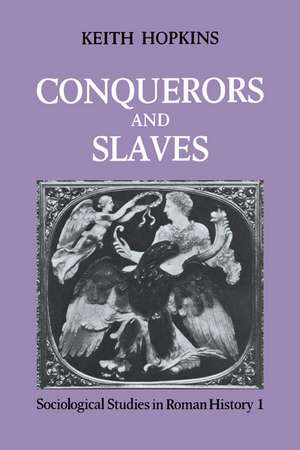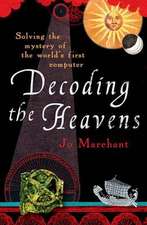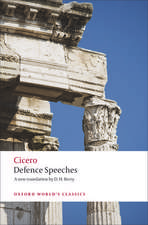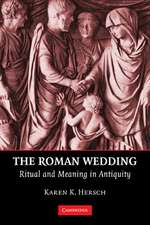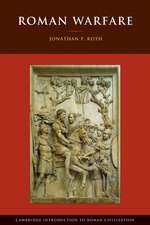Conquerors and Slaves
Autor Keith Hopkinsen Limba Engleză Paperback – 30 ian 1981
Preț: 337.07 lei
Nou
Puncte Express: 506
Preț estimativ în valută:
64.50€ • 67.48$ • 53.58£
64.50€ • 67.48$ • 53.58£
Carte tipărită la comandă
Livrare economică 03-17 aprilie
Preluare comenzi: 021 569.72.76
Specificații
ISBN-13: 9780521281812
ISBN-10: 0521281814
Pagini: 292
Dimensiuni: 152 x 228 x 18 mm
Greutate: 0.43 kg
Ediția:Revised
Editura: Cambridge University Press
Colecția Cambridge University Press
Locul publicării:Cambridge, United Kingdom
ISBN-10: 0521281814
Pagini: 292
Dimensiuni: 152 x 228 x 18 mm
Greutate: 0.43 kg
Ediția:Revised
Editura: Cambridge University Press
Colecția Cambridge University Press
Locul publicării:Cambridge, United Kingdom
Cuprins
List of plates; List of tables; List of figures; Preface; Abbreviations; Maps; 1. Conquerors and slaves: the impact of conquering an empire on the political economy of Italy; 2. The growth and practice of slavery in Roman times; 3. Between slavery and freedom: on freeing slaves at Delphi; 4. The political power of eunuchs; 5. Divine emperors or the symbolic unity of the Roman empire; Bibliography; Supplementary bibliography; Index of subjects; Index of proper names.
Descriere
Professor Hopkins has developed an exciting approach to social questions in antiquity and his book should be of interest to all students of ancient history and of historical sociology.
